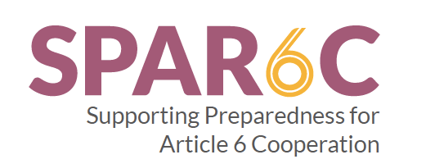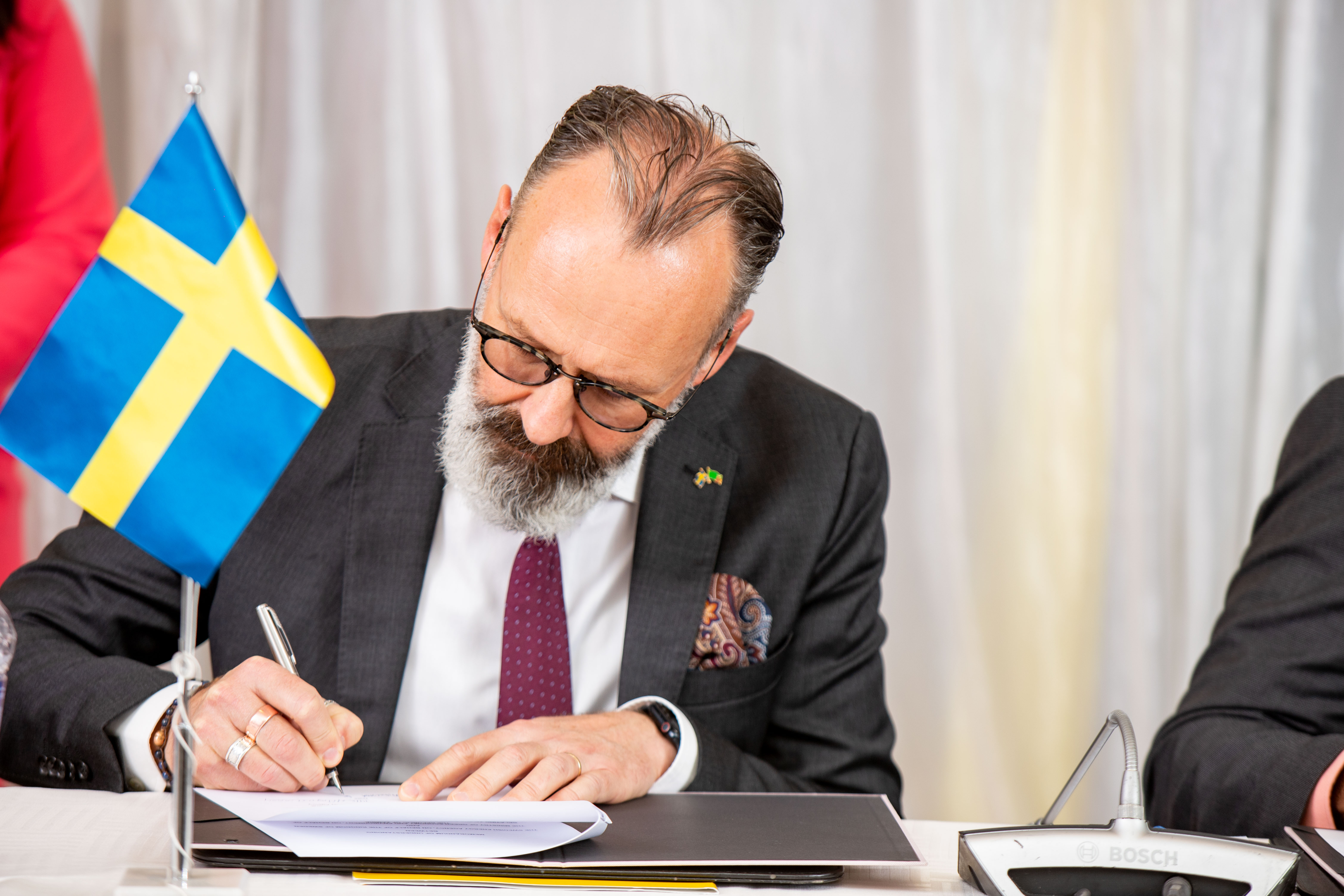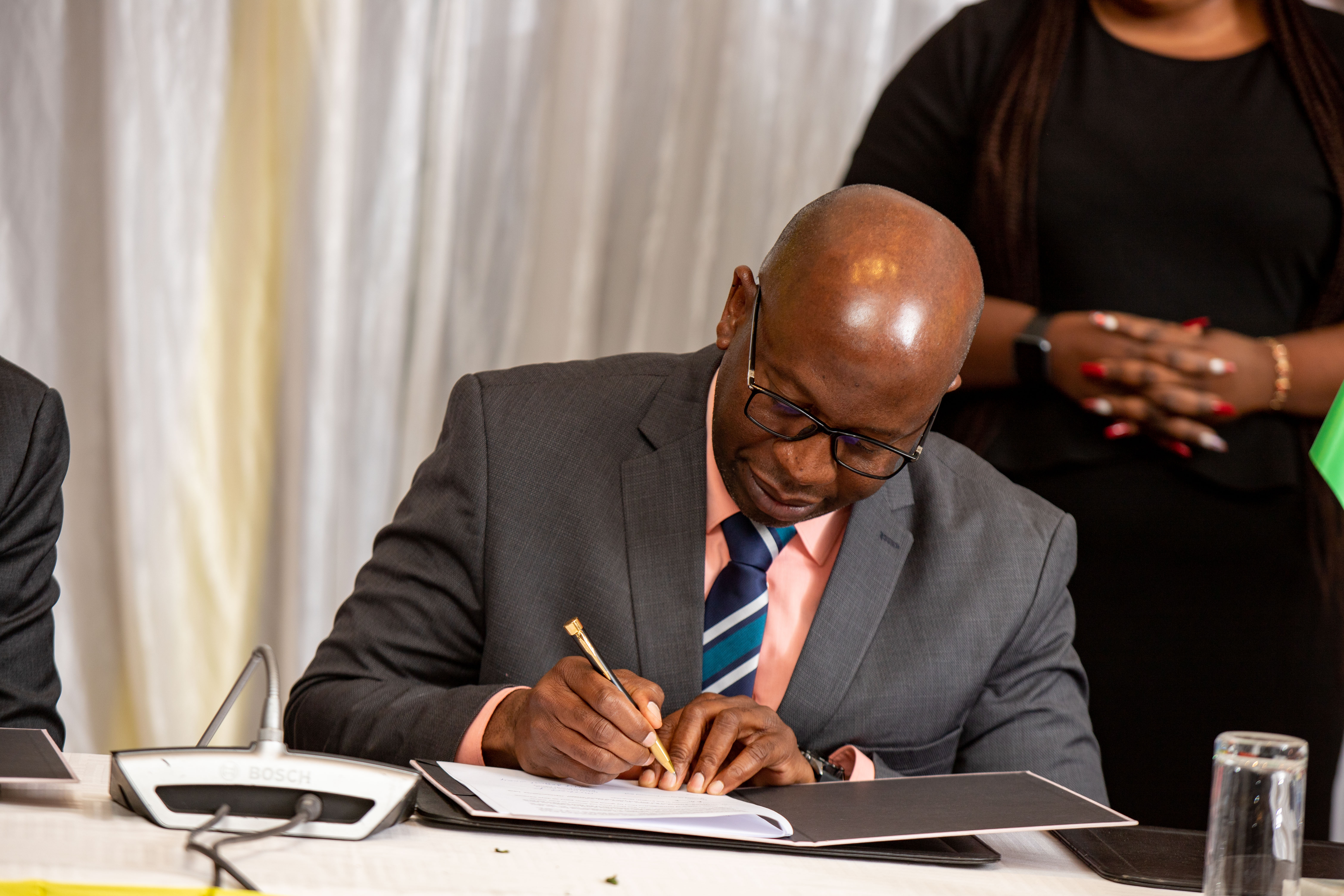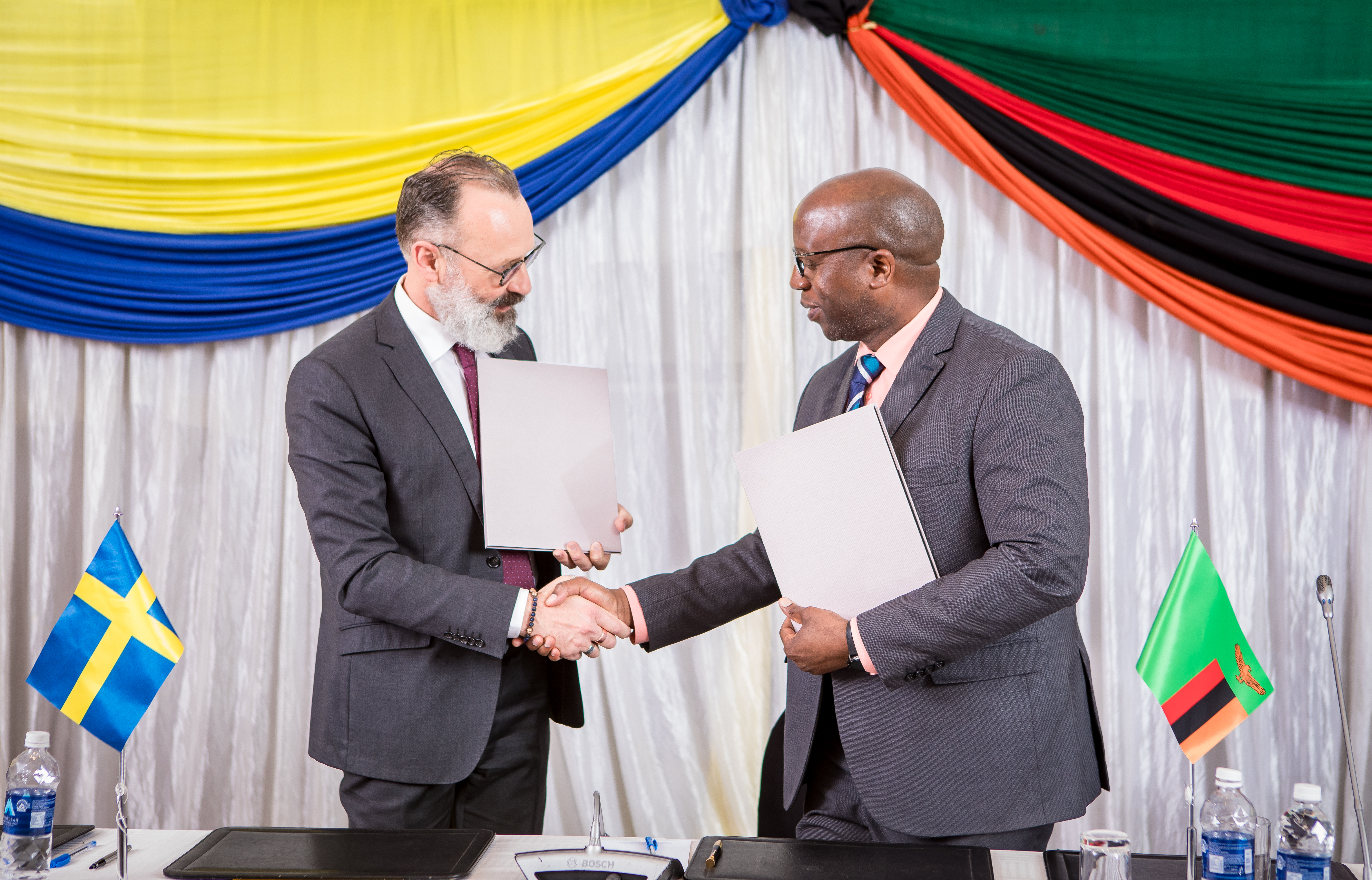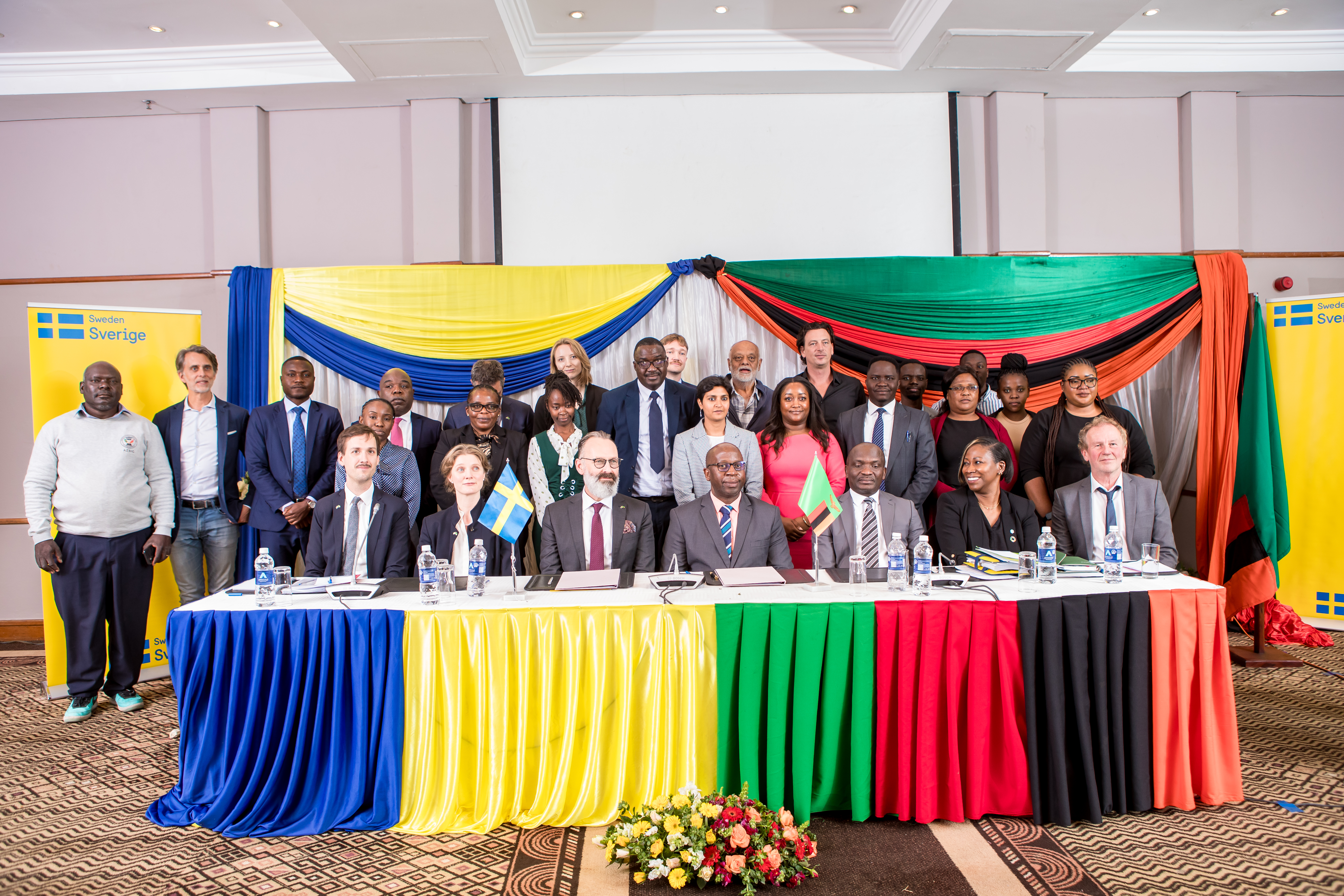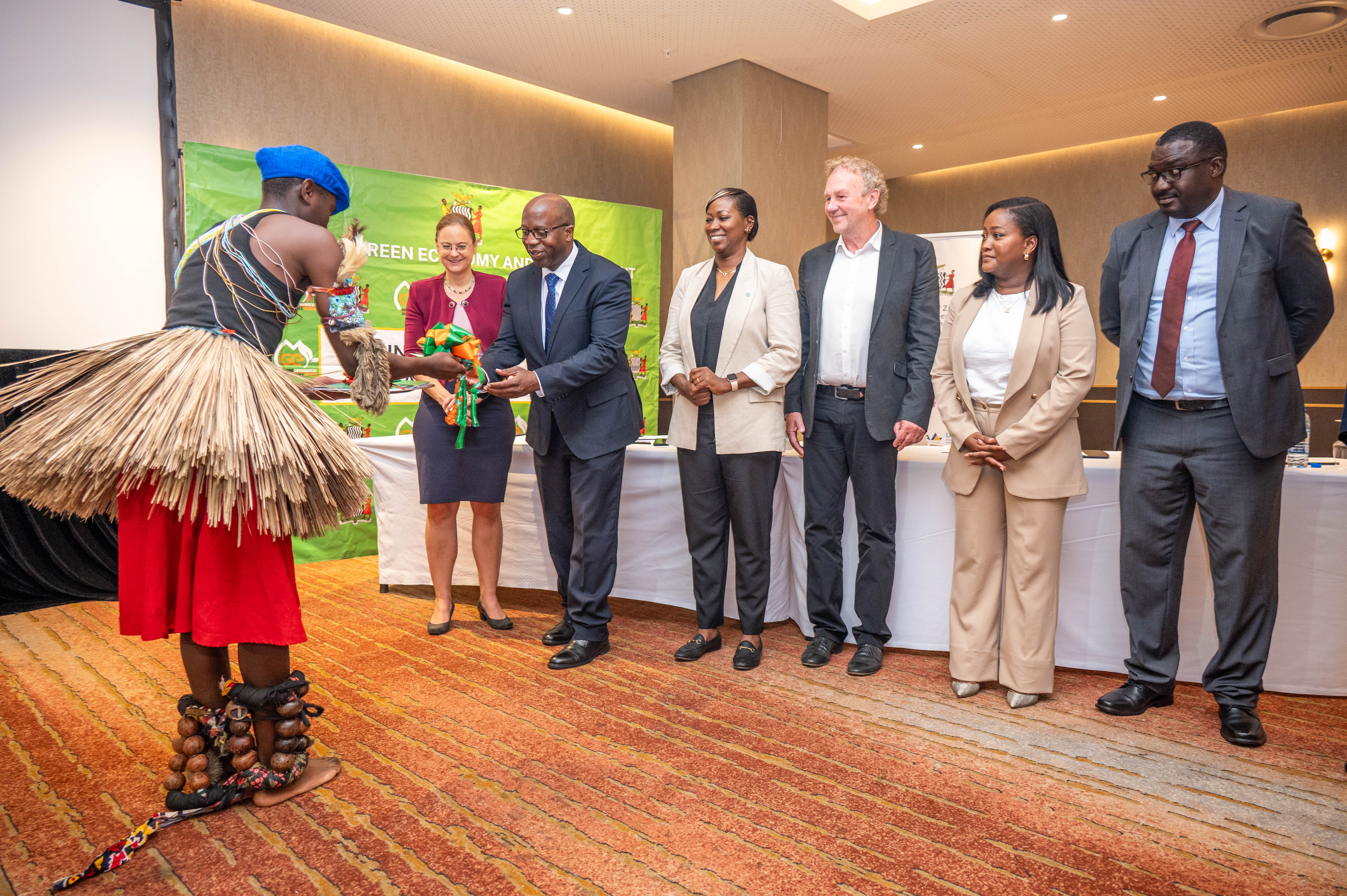Today, Zambia’s Ministry of Green Economy and Environment (MGEE) and the Swedish Energy Agency signed a Memorandum of Understanding (MOU) as a first step towards a potential bilateral agreement on climate change cooperation under Article 6 of the Paris Agreement.
The Government of Zambia was represented by the Minister of Green Economy and Environment’s Permanent Secretary, Dr. Douty Chibamba, while the Government of Sweden was represented by the Swedish Ambassador to Zambia, His Excellency Mr. Johan Hallenborg.
The MOU signing is a result of efforts by the Supporting Preparedness for Article 6 Cooperation (SPAR6C) Programme, led by the Global Green Growth Institute (GGGI) with GFA Consulting and UNEP Copenhagen Climate Centre as delivery partners in Zambia. SPAR6C aims to catalyze investment in greenhouse emissions reductions by supporting its partners to enable transactions of Internationally Transferred Mitigation Outcomes (ITMOs) as allowed under Article 6 of the Paris Agreement. Over the past two years, Zambia has released its carbon market policy framework and is in the process of developing several mitigation activities with the support of SPAR6C.
A milestone for carbon credits
“This signing ceremony marks a major milestone in fostering cooperation for carbon credit transactions between our countries under Article 6 of the Paris Agreement,” Dr. Douty Chibamba stated.
“What you are here to witness today is the first hint of a success story of Article 6 cooperation between Zambia and Sweden. The signing of this MoU forms the first step in the commencement of negotiations of a bilateral agreement to engage in cooperative approaches regarding internationally transferable mitigation outcomes between the two countries, which can potentially” added Dr. Chibamba.
In a statement shared by the Swedish Energy Agency, Caroline Asserup, Deputy Director General of the Swedish Energy Agency stated, “We are very pleased about the formalization of the collaboration between our two countries. International cooperation is vital if we are to meet the challenges posed by global climate change.”
Carbon markets to raise climate ambitions
The Paris Agreement, signed by 197 countries in 2015, represents a historic global effort to combat climate change by limiting global warming to well below 2 degrees Celsius above pre-industrial levels. Article 6 of the agreement is one of the cornerstones for international cooperation, fostering global carbon market mechanisms that enable acquiring countries to raise ambition and meet their NDC targets or comply with emission targets, and for host countries to reduce greenhouse gas emissions while fostering sustainable development.
“Zambia’s government has identified a need for investments in the energy sector. Sweden is already supporting Zambia and other African Countries through the Beyond the Grid Fund for Africa and to the rehabilitation of the Kariba Dam. More investments can be made possible through climate cooperation under the Paris Agreement. The cooperation will strengthen relations between Zambia, represented by Ministry of Green Economy and Environment, and Sweden, represented by the Swedish Energy Agency. The Swedish Energy Agency is one of Sweden’s key expert government agencies on energy-related topics, is mandated to implement climate cooperation under Article 6 of the Paris Agreement. Through this cooperation Sweden can focus on Zambia’s specific needs in relation to the energy sector and Zambia’s climate targets.” said Swedish Ambassador to Zambia H.E Mr Johan Hallenborg.
“We are thrilled about the cooperation between Sweden, a key strategic partner for GGGI’s Article 6 programs, and Zambia, a GGGI Member since 2023, and we are committed to facilitating the development of high impact, high integrity Article 6 transactions between the two parties in support of Zambia’s green growth goals,” said Marshall Brown, GGGI’s Global Program Manager for SPAR6C.
“The implementation of the Article 6 framework is vital in advancing climate change action, and Zambia is setting an example by advancing Article 6 governance with clear eligibility criteria,” said SPAR6C’s lead representative in Zambia, Mr. Joachim Schnurr of GFA Consulting.
A pioneering Article 6 framework
The Ministry of Green Economy and Environment has developed the framework and crafted pioneering criteria for eligibility, approval and other complementary processes. Following this process, MGEE along with the Technical Sub Committee on Climate Change have evaluated 25+ projects and shortlisted 5 projects, of which 2 are currently receiving support from SPAR6C. Securing interest from the buyer countries (e.g., Sweden) is crucial to secure results-based finance through the Article 6, and to send a positive signal to the carbon market project developers.
With the MoU between Zambia and Sweden signed, SPAR6C will continue to support the Zambian government with potential Article 6 mitigation activities. While on their mission visit, Swedish government officials will hold Article 6 Bilateral Agreement negotiations with Zambia and participate in field visits to Carbon Project sites.
The SPAR6C program will continue until mid-2027 initiative and is supported by the German Federal Ministry for Economic Affairs and Climate Change.
